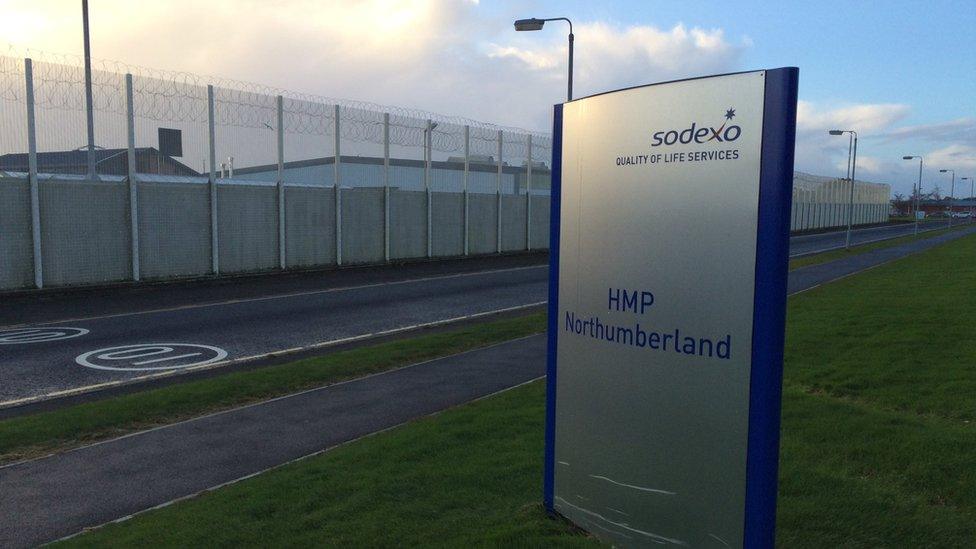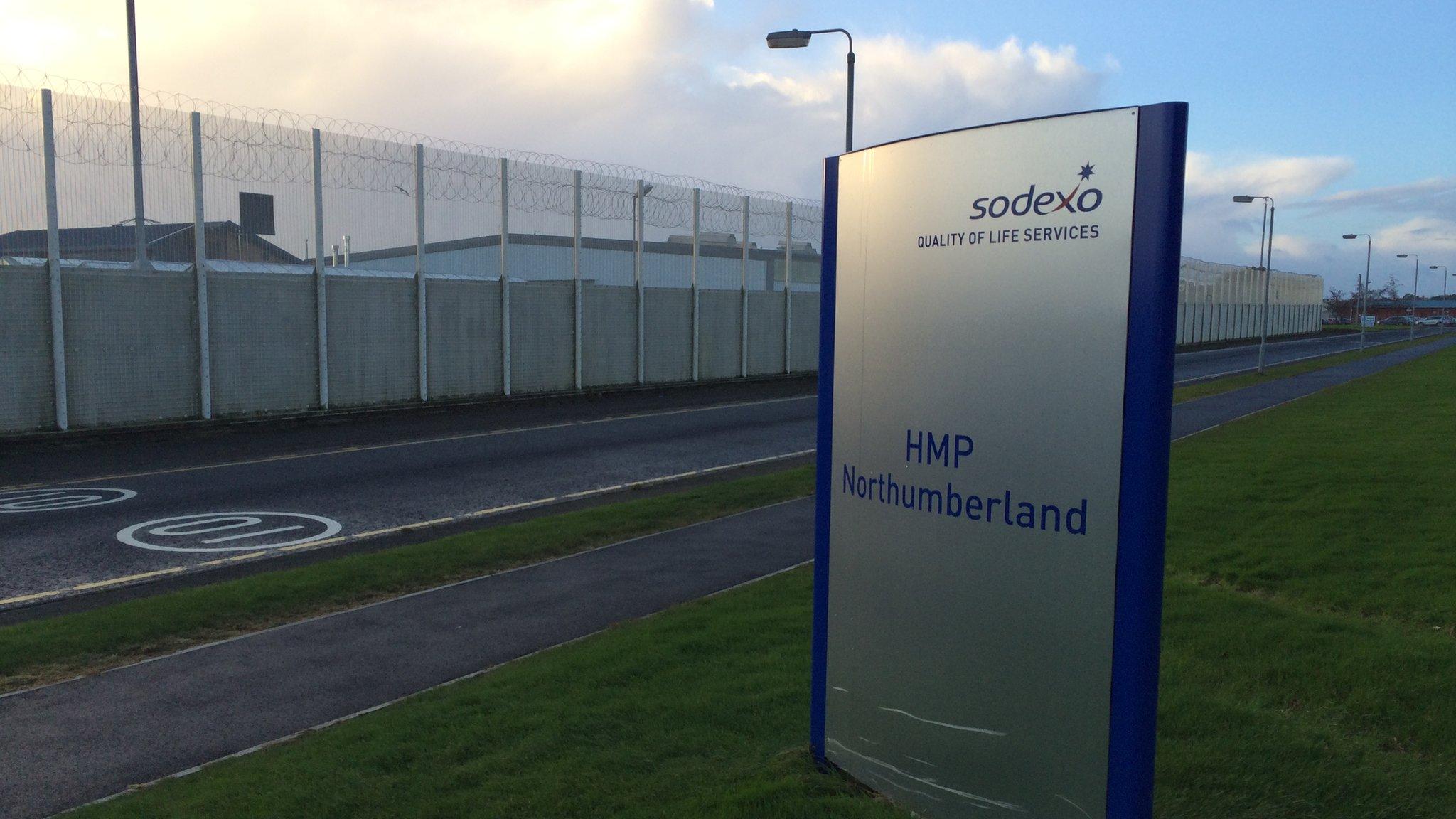Coronavirus: HMP Northumberland inmates kept in cells for eight days awaiting tests
- Published

HMP Northumberland is a category C jail with about 1,300 inmates
Prisoners with coronavirus symptoms were locked in their cells for eight days straight while awaiting testing, inspectors have found.
The HMP Northumberland inmates were unable to shower or get into the open air, HM Inspectorate of Prisons said.
One disabled prisoner had not showered for seven months because he was unable to get to an accessible bathroom.
Sodexo, which runs the 1,300-inmate jail in Morpeth, said it followed official guidelines.
Inspectors visited the prison, which houses inmates in 16 blocks ranging in size from 40 to 240 beds, in mid-September.
'Unofficial punishment'
On the whole there had been a "prompt and active response" to the coronavirus from managers, the inspectors said, and many departments had "risen to the challenge well".
But there were issues with social distancing, with inspectors only seeing it being observed in queues and not among prisoners or staff in less formal groups.
And keeping symptomatic inmates locked up to await testing also caused concern, with the inspectors saying: "We were disappointed to find that a few prisoners who showed symptoms were locked in their cells 24 hours a day for up to eight days, without access to a shower or the open air, until a test result became available."
The showers in one block were inaccessible to inmates with mobility difficulties and inspectors said: "We met one prisoner who had not been able to shower since March, as a previous arrangement to shower in a neighbouring house block was not possible during this period."
The inspectors recommended "all prisoners should have access to a daily shower".
There was also concern at delays of up to three weeks in the monitoring of mail and phone calls of those inmates who posed a "specific" public protection risk.
Inspectors were also troubled by some prisoners being kept in their cells as an "unofficial punishment" and said disciplinary action "should only be taken in line with established policies and procedures and subject to proper oversight".
Samantha Pariser, director at HMP Northumberland, said the report highlighted a number of positives during "these unprecedented times" including "extremely low levels of violence and self-harm, in cell activity packs and the reintroduction of social visits".
She said: "Throughout the pandemic we have followed guidelines issued by Public Health England, HMPPS and Sodexo, and worked closely with all relevant authorities, to limit any transmission of infection to keep all those who work, live and visit HMP Northumberland safe."

Follow BBC North East & Cumbria on Twitter, external, Facebook, external and Instagram, external. Send your story ideas to northeastandcumbria@bbc.co.uk, external.
- Published21 November 2017

- Published23 April 2016

- Published27 January 2015
